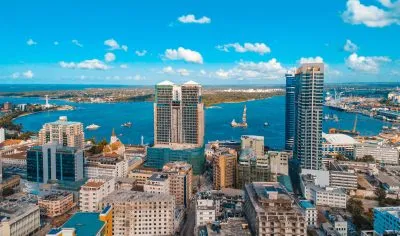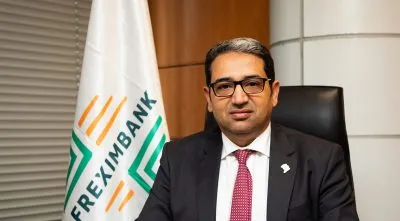Too few of Namibia’s state-owned enterprises make a profit. Recent initiatives, such as a bill on corporate governance, are aimed at turning them around, but will they have the desired effect? Tom Minney investigates.
How much does it cost to keep an airline flying? In the last five years alone Namibia has ploughed N$1.8bn ($127m) of its national budget into state-owned Air Namibia, which operates 10 aircraft on routes to 18 destinations, seven of which are domestic.
It is one of 22 commercial state-owned enterprises (SOEs), several of which are struggling to make money. Some make a profit on a regular basis, but others are highly reliant on government subsidies.
A total of N$4.5bn of budget subsidies has gone to 11 commercial SOEs in the last five years, according to figures by economist Robin Sherbourne for the Namibian Quarterly Economic Review.
The government says its business portfolio is worth N$90bn, with parastatals providing one in 20 jobs.
Top performers include Namibia Power Corporation (Nampower), with profit after tax of N$1.2bn in 2017/18.
Other stars are Mobile Telecommunications Corporation (MTC), which produced N$711m in 2016/17 and Telecom Namibia (N$244m in 2016/17).
Problem parastatals include Namibia Wildlife Resorts, which operates key resorts at the heart of a highly rated tourism industry but requires government subsidies and is under fire for lucrative long-term concession agreements with private operators.
Commenting on last year’s budget allocation to SOEs of more than N$4bn, public enterprise minister Leon Jooste said:
“The return on assets of the PE (public enterprise) portfolio is negative/loss-making (more than N$150 million per annum).”
There are multiple reasons for the poor performance of SOEs.
Many act as monopolies without fear of competition, while others lack accountability to shareholders. (Many of the most subsidised parastatals fail to publish annual accounts).
Board and senior management positions are doled out based on political grounds.
The Namibian media have reported on the sky-high salaries of board directors and managers and queried multimillion procurement deals and contracts.
The problems are compounded by abrupt suspensions for incompetence or corruption, which can lead to drawn-out court battles, sometimes on full pay.
Jooste has warned: “In cases where reckless trading or gross negligence can be determined, board members will be held personally liable with associated unpleasant consequences.
“This is a simple but fundamental requirement to cultivate a performance culture within the public enterprises.”
Recent disputes include a N$2bn partnership between the Roads Contractor Company (RCC) and Chinese firm Nantong Sanjian, including a N$580m loan, which transport minister John Mutorwa ordered RCC to cancel in May 2018, a month after it was signed.
The spat diverted from a fundamental problem, according to an insider:
“The Ministry of Finance has been paying the salaries of all RCC employees for nearly two years, even though RCC had no contracts.”
Addressing the problems
Early steps to stop the rot included a national governance framework in 2001 and the creation of a Central Governance Agency in 2003, followed by laws on governance in 2006 and 2008.
Little changed. SOEs remain accountable to different ministers, who appoint the directors and sometimes get involved in management under a dual-governance model.
In March 2015 President Hage Geingob took office, after years as prime minister, and a new Ministry of Public Enterprises opened with a move towards centralised governance.
The 2015 Public Enterprises Governance Amendment Act says the ministry is to align, integrate and oversee the functions and responsibilities of parastatals.
The latest Public Enterprises Governance Bill went before Parliament in October 2018.
It will allow the minister to declare any state-owned enterprise a “public enterprise” that will be required to make a “sustained profit”.
The minister will represent the government as shareholder and be able to lay down principles of corporate governance, choose criteria to measure and evaluate performance, issue directives on pay for boards and senior management, advise ministers as they appoint or remove board members, and run investigations.
Public enterprises will have to develop five-year strategic plans, propose an annual business and financial plan within 90 days of the start of each financial year, and seek a range of approvals.
Key to the Public Enterprise Ministry’s improvements is its Corporate Advisory Reform Unit which includes four governance experts known as the “A team”, who are reported to earn N$1.7m-N$2.1m a year each.
Their task is to find ways to improve performance and boost long-term shareholder value.
One step is advising on appointing technocrats, as is the case with Air Namibia’s new board, who started work on 1 January, two months prior to the resignation of acting executive head Mandi Samson.
Selling shares
Another step is for government to sell part ownership in key businesses. At independence in 1990 “privatisation” was a dirty word among Namibia’s trade unions, a key support base for the ruling SWAPO party.
Politics has since shifted, prompted by union-related businesses winning public-private partnerships.
Finance minister Calle Schlettwein says that listing parastatals on the Namibian Stock Exchange (NSX) will boost their performance and contribute to public revenues.
First for listing is Mobile Telecommunications Corporation (MTC).
In 2017 cabinet authorised Namibia Post and Telecommunications Holdings (NPTH) – which owns Telecom Namibia, MTC and Nampost on behalf of government – to sell shares.

In January 2019 NPTH called for proposals from local stockbroking firms and in April the board was further strengthened to seven.
Some reports value MTC at N$6.9bn. An initial public offering (IPO) could be for 29% of the shares, with another 20% taken by for the giant Government Institutions Pension Fund (GIPF, with assets of N$106bn).
Resistance is stiffening. In March, local reports claimed that deputy minister of public enterprises Veikko Nekundi was pushing for the A-team contracts not to be renewed.
Several entrepreneurs have profited from parastatal contracts, while some ministers fear that centralising control will shrink their influence and scope for patronage.
But parastatal board director and lawyer Ally Angula said change was needed:
“For as long as we have companies being directed by politicians for their own political points, with no sense of financial implications, we will continue to drive state-owned enterprises into the ground.
“For as long as we allow unethical directors to continue to serve on boards, we are rewarding bad behaviour at the expense of the employees, the taxpayers and every citizen of this country.”
Want to continue reading? Subscribe today.
You've read all your free articles for this month! Subscribe now to enjoy full access to our content.
Digital Monthly
£8.00 / month
Receive full unlimited access to our articles, opinions, podcasts and more.
Digital Yearly
£70.00 / year
Our best value offer - save £26 and gain access to all of our digital content for an entire year!
 Sign in with Google
Sign in with Google 


